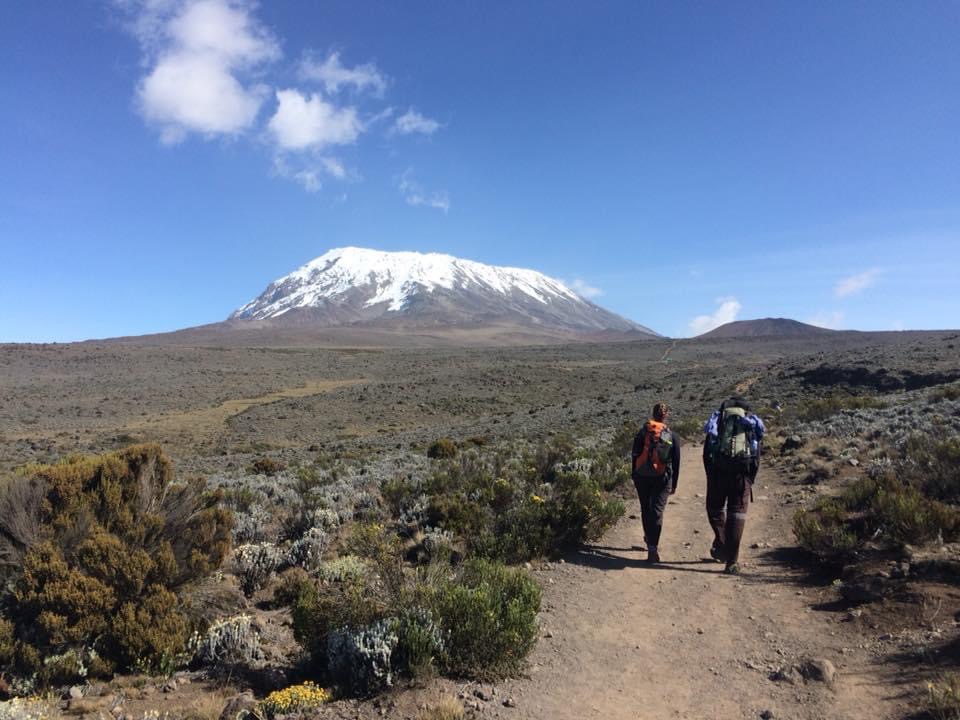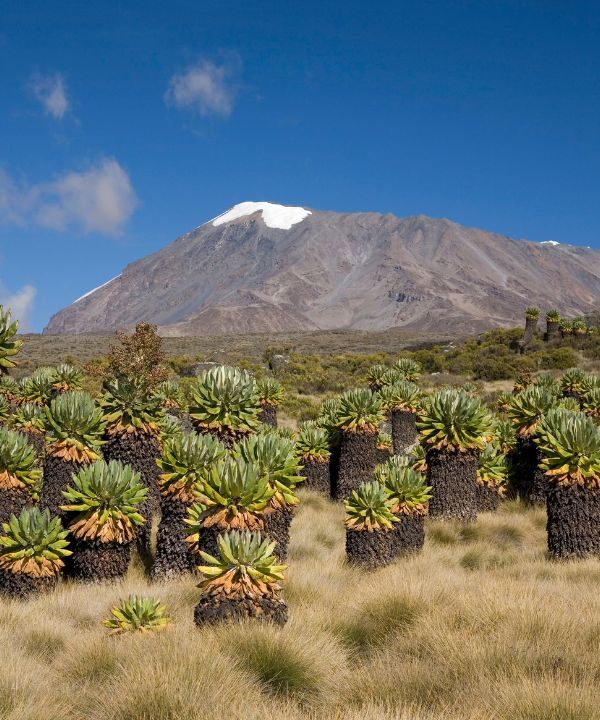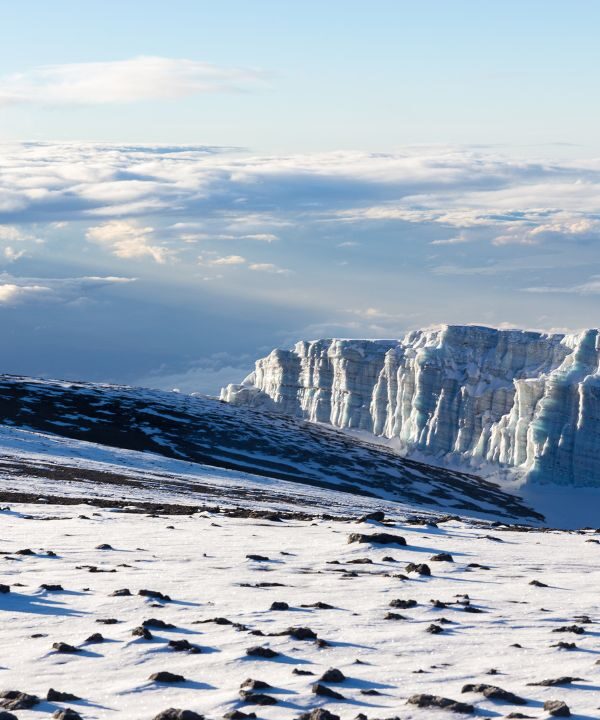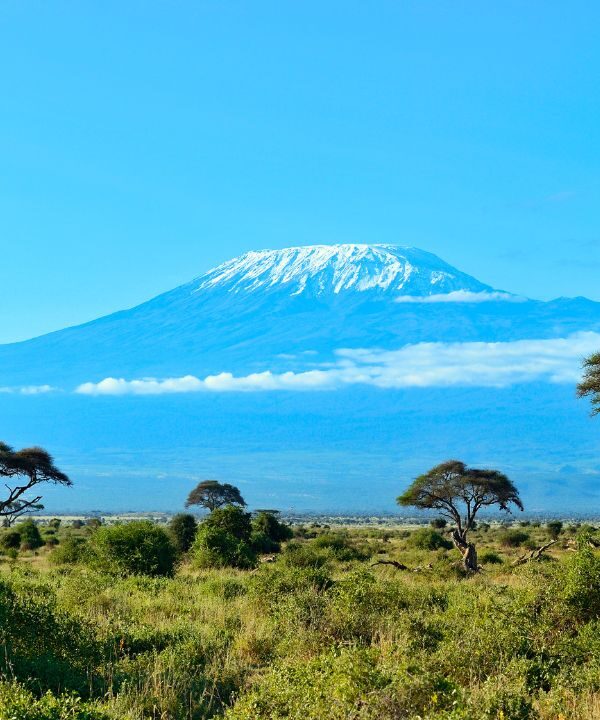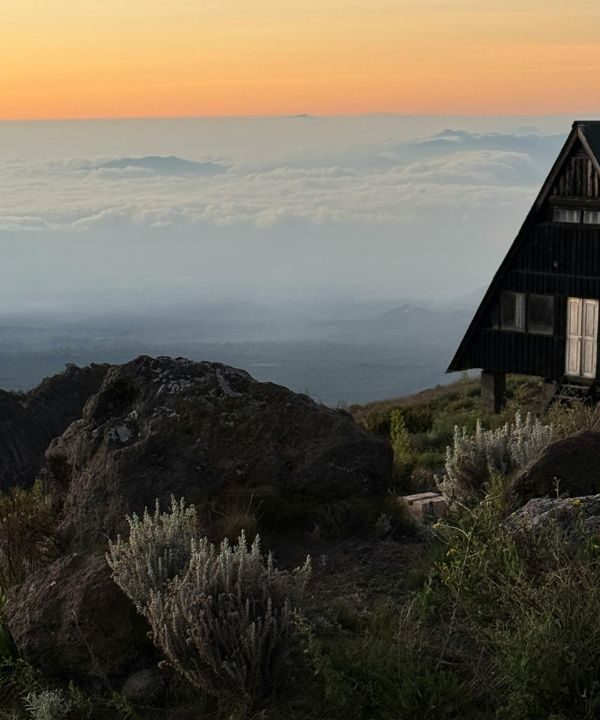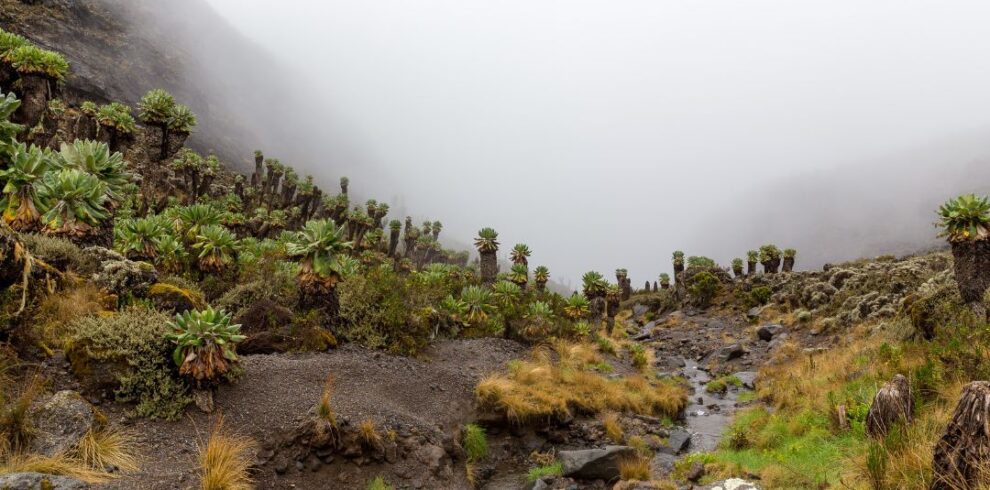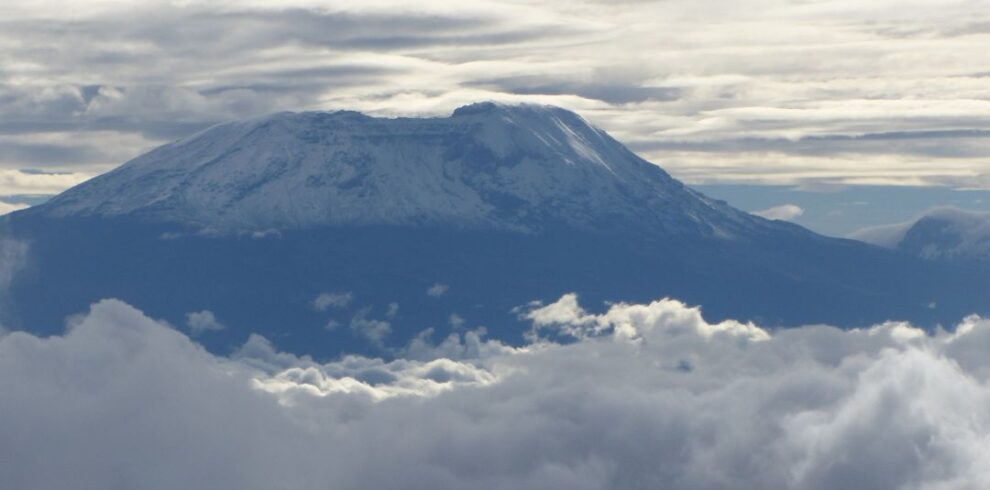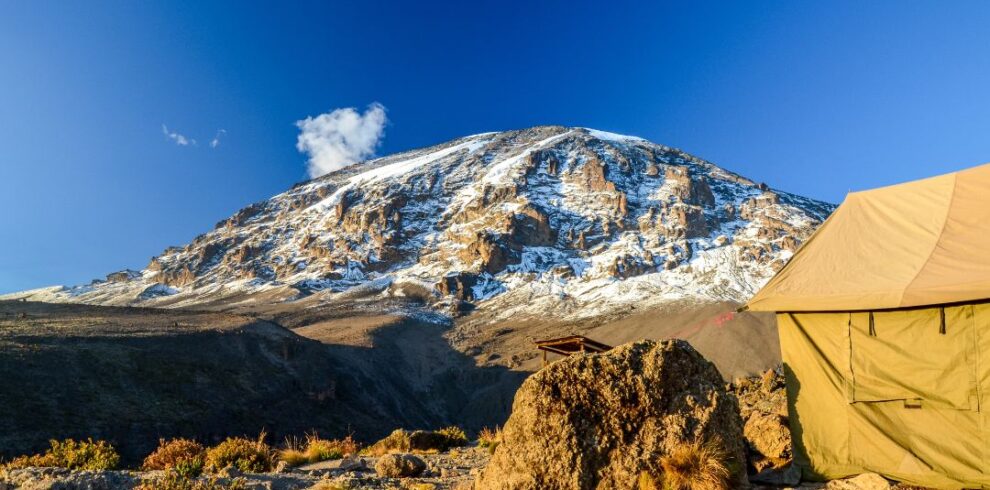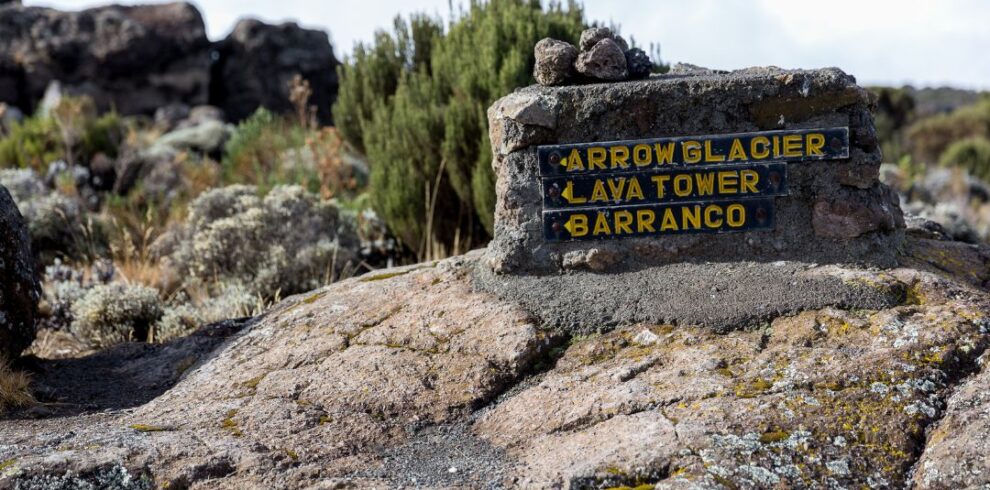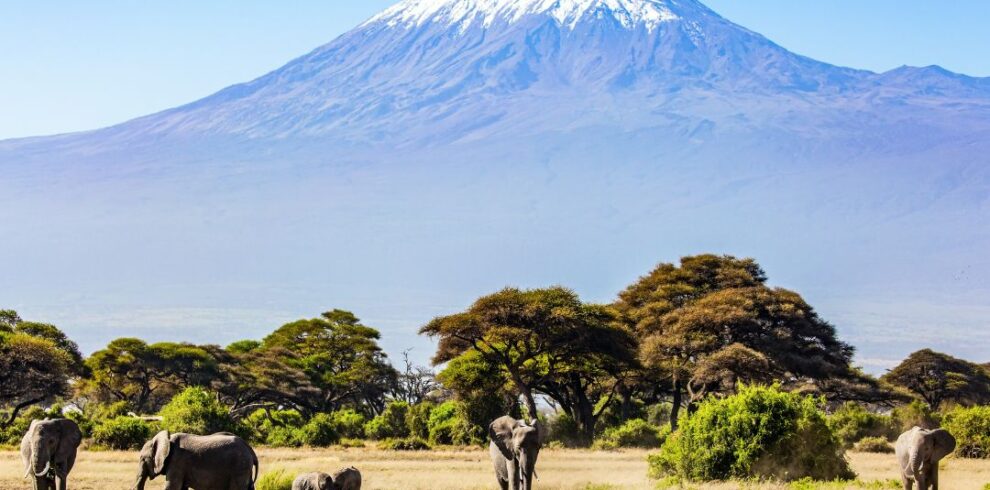The trail leads you through lush rainforest before emerging into the open moorland zone. As you gain altitude, the landscape transforms dramatically, and you'll settle in for the night at Shira Camp, surrounded by stunning high-altitude scenery.
Elevation at the start: Machame Gate (1,640 meters/5,380 feet)
Elevation at the end: Machame Camp (2,835 meters/9,301 feet)
Trekking time: Approximately 5-7 hours
The journey begins at the Machame Gate, where you will register with the park authorities and start the hike through the lush rainforest. The day's trek is moderate and ends at Machame Camp, where you will spend the night.

